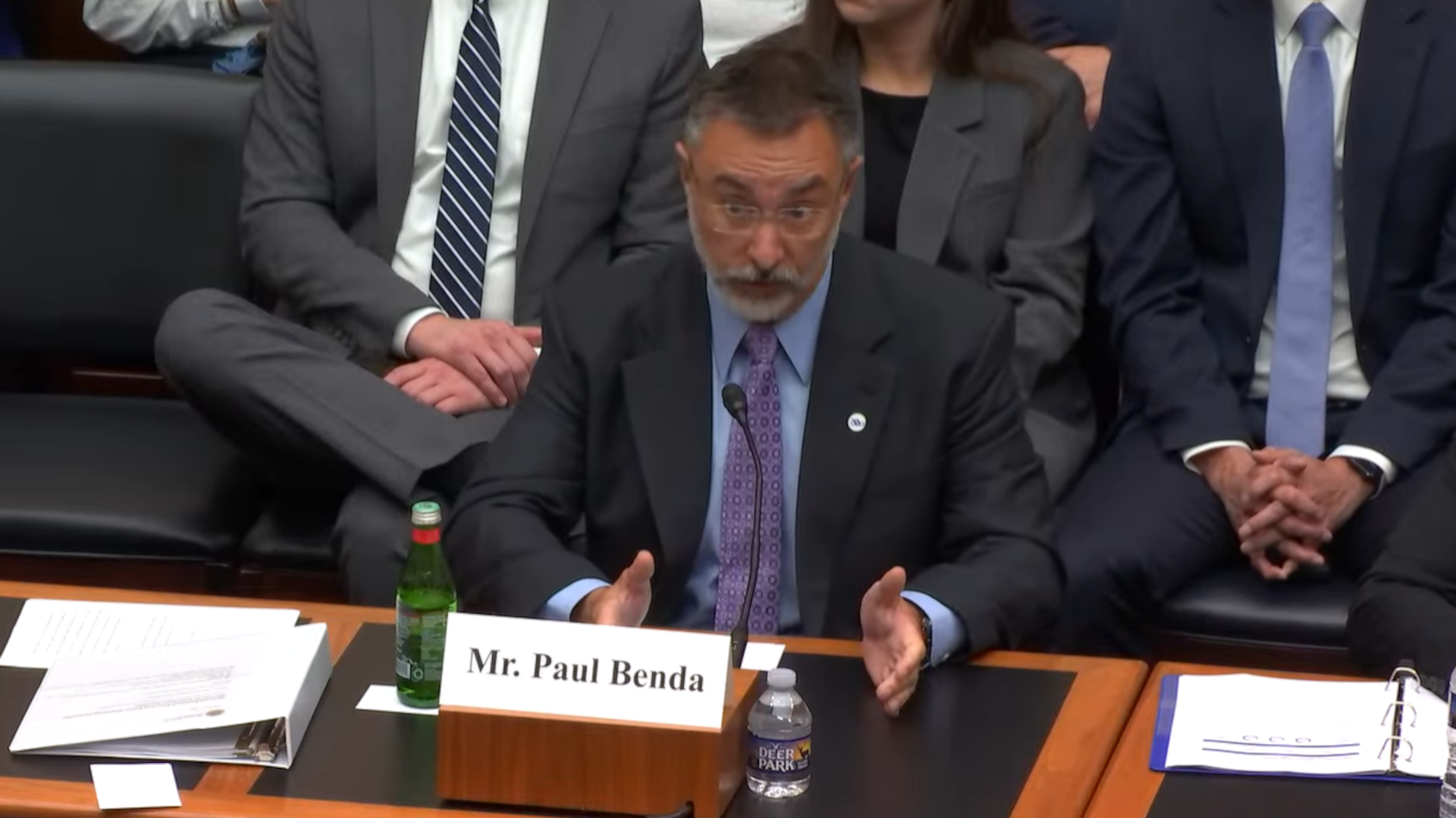AFSA & ABA seek collaboration to reduce fraud in auto finance & elsewhere

Paul Benda is the executive vice president of risk, fraud and cybersecurity for the American Bankers Association. Screenshot courtesy of the U.S. House of Representatives.
By subscribing, you agree to receive communications from Auto Remarketing and our partners in accordance with our Privacy Policy. We may share your information with select partners and sponsors who may contact you about their products and services. You may unsubscribe at any time.
Both the American Financial Services Association and the American Bankers Association welcomed the dialogue during a hearing last week hosted by the U.S. House Financial Services Committee.
Lawmakers and industry advocates discussed several financial scams currently affecting consumers and lenders, including credit repair scams, for-profit debt settlement schemes, and auto loan fraud issues.
Following the hearing, AFSA president and CEO Celia Winslow urged lawmakers to push forward with approving the Ending Scam Credit Repair Act (ESCRA).
“This is bipartisan legislation will help protect consumers from fraudulent credit repair organizations (CROs) practices and prohibit these entities from ‘jamming’ financial institutions with duplicative credit dispute requests,” Winslow wrote in a letter to House committee members. “Unfortunately, we have seen a rise in CROs using generic form letters to dispute negative items on credit reports, regardless of accuracy, to flood lenders and divert our resources away from legitimate consumer disputes.
“ESCRA would help improve the consumer lending markets and help alleviate stress on the dispute process for financial service providers, including small business lenders,” Winslow continued.
Winslow also cautioned lawmakers about the depth of fraud happening in auto finance. She cited recent research that estimated lenders will absorb $9.2 billion in fraud losses this year.
Subscribe to Auto Remarketing to stay informed and stay ahead.
By subscribing, you agree to receive communications from Auto Remarketing and our partners in accordance with our Privacy Policy. We may share your information with select partners and sponsors who may contact you about their products and services. You may unsubscribe at any time.
“Driven by AI tools, synthetic identity theft, credit washing methods, and others, auto-related fraud is rated as a top category according to the Federal Trade Commission’s Consumer Sentinel Network,” Winslow wrote to lawmakers. “These scams raise costs for lenders and ultimately harm the entire automobile retail ecosystem, including law-abiding consumers.
“Moreover, the high costs involved in combatting fraudulent activity threaten to drive smaller-scale financial institutions out of the auto financing industry altogether, potentially reducing competition in the marketplace,” she continued.
“As Congress discusses different financial frauds and scams, we encourage the committee to work with relevant federal agencies to examine potential solutions addressing the increase of auto fraud activities,” Winslow went on to say.
Working together to fight fraud was the main theme of one of the hearing witnesses. Paul Benda is the executive vice president of risk, fraud and cybersecurity for the American Bankers Association.
“Combating these criminals requires not just banks to act but all entities involved in the scam and fraud ecosystem,” Benda told lawmakers. “It’s imperative for the telecommunications companies and their regulators to take action to prevent criminals from spoofing legitimate names and phone numbers to convince customers they are speaking with a bank. Also, social media companies should take steps to proactively root out accounts pretending to be bank employees or financial advisors to convince people to put their money into their investment scams.
“In addition, the postal service must improve the security of the mail system so that when someone mails a check, it will not get intercepted, stolen, altered or cashed by the criminal. Most importantly, banks need strong partnerships with law enforcement,” he continued. “These criminals cannot be stopped by banks alone, and we support law enforcement as they combat this scourge. While banks need to have the technology and infrastructure in place to defend themselves and their customers, they can only provide the leads necessary for law enforcement to track down the perpetrators. Law enforcement must have resources adequate to address the size of the problem, and we must have ways of addressing foreign bad actors who operate outside U.S. jurisdiction.
“Offenders cannot be allowed to continue to steal from American consumers and businesses. Banks also welcome the chance to partner with community-based organizations that are doing critical work in this area, as they are trusted voices in many underrepresented communities. Banks clearly play a key role in fighting fraud, but unless every player in the ecosystem joins the fight, criminals will continue to steal at a scale we have never witnessed before,” Benda went on to say.


